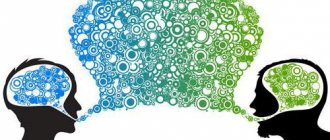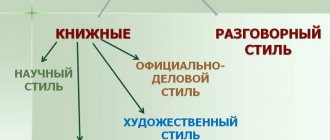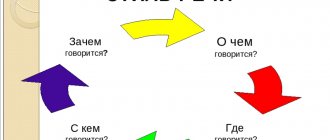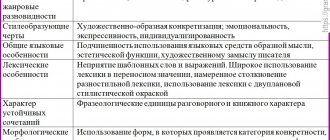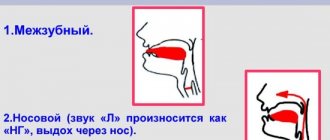The Word is a great ruler who has a completely invisible body, but is capable of doing the most wonderful things. With the help of the right word, you can rid a person of fear or bring about sadness. In addition, such a means of expression helps convey important information to the majority of people. This was used by various minds of the ancient world, who were called orators. In our article we will talk about the most famous ancient Greek speakers and their works that have survived to our times.
Who is a speaker?
Before we begin to familiarize ourselves with the main material, let's first understand who the speaker is and what he does. If you turn to the dictionary of the modern Russian language, you can find several definitions of this term, each of which carries a certain amount of truth. For example, speakers today are people who study the art of eloquence at a professional level.
Also, many modern writers use this term in their works, presenting to the reader characters who have a certain gift of speech. In short, a speaker is a person who delivers a specific speech. In the following sections you will find the names of ancient Greek speakers and their works, which are also used by the modern generation.
Theophrastus
Let us turn to Theophrastus (III century BC), a student of Aristotle. As we have already said, most often in Antiquity they referred to his essay “On Style,” where Theophrastus identifies four, as he says, forces (later called “virtues of style”): correctness, clarity, appropriateness, decoration. Thus, Demetrius writes that “Theophrastus considers beautiful a word that pleases our imagination and hearing or indicates a sublime thought contained in it” ( On Style,
173). He also wrote an interesting essay “Characters”, where he examined in detail the negative human qualities and continued the study of the psychology of emotions, begun by Aristotle in the second book of “Rhetoric”. “Characters” provided rich material for rhetorical argumentation—for example, to denigrate an opponent.
Theophrastus also developed a theory of speech pronunciation, thereby completing the series of “invention (invention), disposition (arrangement), elocution (creation of the text of an utterance), memoria (memorization) and accio (pronunciation).” In developing this theory, he used the experience of the acting art of the Greek theater.
Socrates and Plato
Perhaps the two most famous orators of Ancient Greece, whose works and statements can still be found today. According to Plato, who considered himself more of a scientist than an orator, the art of eloquence is based on knowledge of the truth, and not on the correct construction of sentences and the use of phraseological units. Only if a person develops comprehensively will he be able to understand the nature of human souls and begin to convey the word to them.
As for Socrates, the scientist’s most famous work is considered to be a dialogue called “Phaedrus,” in which the famous philosopher discussed the meaning of life with a young man named Fedor. The author adhered to the theory that before you begin to convey your opinion to your interlocutor, it is necessary to study it in detail, like any subject. After this, you can find the right levers, by pressing which you will inspire trust and respect in your interlocutor.
Ancient rhetoric
The birthplace of eloquence is Ancient Greece , although oratory has been known since ancient times in Egypt, Assyria, India, and Babylon.
Rhetoric is the spiritual child of democracy. It was the democratic forms of government in Hellas in the 5th century. BC. became the reason for the rapid rise of oratory. The People's Assembly in Ancient Greece, the supreme body of power, brought up for public discussion issues of war and peace, the election of senior officials, and the interpretation of the laws by which the state should live. Court cases were also decided publicly.
The jury trial (helieya) was quite representative (there were about six thousand jurors). Any free citizen of Athens could act as an accuser; There were no prosecutors or defense attorneys; the defendant defended himself, proving to the judges his innocence.
So “justice” ended up on the side of the one who, possessing the gift of speech, knew how to convince judges and juries of his innocence. Oratory in Ancient Greece played an important role, because a politician had to speak at public meetings, a commander - before an army, a private person - before a court, as well as at festivals, friendly meetings, funerals, which were usually crowded. Mastering the word was a vital necessity for every citizen of Hellas.
Various spheres of life have given rise to three main types of eloquence: political (deliberative), epideictic (solemn, ceremonial) and judicial. The founders of eloquence were the sophists, representatives of the Athenian school of philosophers and educators.
oratory existed only in oral form; samples of speeches, even the most interesting ones, were not recorded. In the second half of the 5th century. BC. sophistry introduces written recording of speech. The sophists, “masters of wisdom,” considered it their task to instill in their students the art of speaking well and convincingly on political and moral topics. To do this, they were forced to memorize the texts of speeches, which were considered models of eloquence, standards to follow.
On the basis of practical eloquence, the sophists also developed the theory of oratory - rhetoric. The opening of the first rhetorical schools and the creation of the first textbooks on rhetoric are associated with the names of the sophists Corax and Lysias from Syracuse (mid-5th century BC).
The sophist Gorgias of Leontius (485-380 BC) received recognition and contribution to the theory of eloquence. This rhetorician paid main attention to issues of style. To enhance the psychological impact of speech, he used stylistic means of decoration known as Gorgias figures. Among them are such as antithesis, oxymoron, division of sentences into symmetrical parts, rhymed endings, alliteration, assonance, etc.
Gorgias attached great importance to the word and its effect on listeners, since he believed that “the word is a great ruler who ... can instill fear, and destroy sadness, and instill joy, and awaken compassion.” By the power of his conviction, Gorgias forced the sick to drink such bitter medicines and undergo such operations that even doctors could not force them to do.
Gorgias's contemporaries, the sophists Thrasymachus, Protagoras and others, developed and enriched the theory of eloquence. Thrasymachus developed a period - a complex sentence of significant length, including secondary sentences that in different aspects reveal the meaning of the main one.
Protagoras named situationally determined types of speech (request, question, answer, order) and gave their detailed characteristics. Thanks to the works of the sophists, rhetoric gains greater recognition and is included in the range of sciences required for the education of citizens.
It should be noted that the attitude towards the sophists was ambivalent. At first, their activities did not evoke critical assessments: a sophist was a person who devoted himself to mental activity and was skilled in some wisdom, including scholarship.
The sophists taught methods of proof and refutation, the rules of logical thinking. They introduced students not only to the techniques of political and legal activity, but also taught philosophy. The sophists focused their attention on social issues, on man, and on problems of communication, teaching oratory. However, over time, the sophists changed the direction of their activities.
Their main task is to select and apply logical and psychological tricks with which they can achieve victory in the controversy. Using dialectics as the art of reasoning, the Sophists began to claim that anything could be proven. The main thing is to choose the right means for proof (the end justifies the means).
For example, arguing that making an uneducated person educated means killing him, the sophist reasoned as follows: “Having become educated, he will not be what he was.” If a sophist was caught in a lie, he would turn around like this: “Whoever lies says something that is not there. But what is not there cannot be said, therefore no one can lie.” All sophistic statements are based on a single technique: reducing to the point of absurdity the position of the relativity of all human knowledge. It is no coincidence that the word “sophist” is now understood as a liar, a deceiver.
Assessing the contribution of sophistry to the development of rhetoric, we note that, on the one hand, the Athenian citizens needed sophists, as they taught them the art of speech, the ability to persuade and argue; but, on the other hand, manipulation of consciousness, the use of false, deceptive arguments require objective condemnation. It is no coincidence that these methods in ancient times aroused distrust and sometimes hostility towards the sophists, with which we cannot but agree.
The first challenge to the Sophists was issued by the great ancient Greek philosopher Socrates (c. 470-399 BC). Unlike the sophists, who studied primarily the psychological impact of speech on listeners, Socrates puts logical proof first. Socrates became famous as one of the founders of dialectics: he sought truth through conversations and debates.
Finding out the truth in a dispute was called eristics. The components of Socrates' eristics were irony and maieutics (translated from Greek as the art of the midwife).
Irony was expressed in the philosopher’s ability to lead his opponent into a logical dead end with a witty system of questions and answers. Maieutics contributed to the formation of correct thought. Socrates wittily noted that with his question-and-answer method and logic, he contributed to the birth of the correct thought in a conversation, just as a midwife helps a person to be born.
Socrates' student Plato (427-348 BC) outlined his theory of eloquence in the famous dialogues Phaedrus and Gorgias. The central character of Plato's dialogues is Socrates. True eloquence, based on knowledge of truth, and therefore accessible only to the philosopher, is opposed to the rhetoric of the sophists. In the dialogue "Phaedrus".
In the conversation between the philosopher Socrates and the young man Phaedrus, the ideal of true eloquence is presented. Only having clearly defined a subject can one begin to talk about this subject. Socrates advises Phaedrus: “In any matter, young man, in order to discuss it correctly, it is necessary to begin with the same thing: you need to know what exactly is being discussed, otherwise continuous mistakes are inevitable.” The next task of the speaker is to know the truth, i.e. the essence of the subject: “First of all, you need to know the truth about any subject you speak or write about.” Plato emphasized the importance of composition in oratory.
Order in speech is manifested, according to the author, in its construction: “In my opinion, first, at the very beginning of the speech, there should be an introduction,” says Socrates. - and in second place is the presentation, and behind it is evidence, in third place is evidence, in fourth place is conclusions.” Socrates describes in detail the structure of speech, relying on established rhetorical traditions.
The future speaker should listen to Plato's thoughts on the impact of speech on the soul. It sounds as if uttered by our contemporary: “Since the power of speech lies in its influence on the soul, one who is going to become an orator needs to know how many types the soul has...”.
The speaker needs to correlate the types of speeches and “types of soul”, take into account the human condition, understand which soul and with what speeches can be convinced. The main task of the rhetorician is to find, to find the type of speech that corresponds to each character. Consequently, “construct and arrange your speech this way, i.e. to address a complex soul with complex speeches covering all modes, and to a simple soul with simple speeches.”
According to Plato, true eloquence does not exist without knowledge of truth. After all, truth is both the goal of science, and the goal of art, and the ideal of moral motives. By cognizing the essence of things, a person creates a correct idea of them. The speaker, having learned the nature of human souls, is able to instill his opinion in his listeners. Dialogue, in which participants seek the truth with the help of skillfully posed questions, had a huge influence on the development of rhetoric.
Plato's ideal is not only conviction, but also the search for truth. Without knowing the truth, you cannot master the art of eloquence. This statement of Plato has important practical significance for rhetoric: the listener, together with the speaker, “walks” the path of searching for truth. This is how associations, doubts, reflections are born, i.e. the path from thought to word begins.
The largest theorist of ancient rhetoric is the ancient Greek philosopher and scientist Aristotle (384-322 BC). He was a student of the philosopher Plato and during the twenty years he spent at the Teacher's Academy, he acquired the highest authority.
Aristotle's writings cover the entire spectrum of sciences and arts that existed at that time. His treatises on logic, physics, biology, philosophy, ethics and politics are well known. In the field of philology, two works of Aristotle are popular - “Poetics” and “Rhetoric”, which laid the foundations for the European understanding of literary creativity and artistic speech.
In Rhetoric (335 BC), the author sets out in detail his views on the fundamentals of oratory. The work consists of three books. The first book contains general provisions characterizing the subject of rhetoric and types of oratory. According to Aristotle, rhetoric and logic study issues that are to some extent close to every person; in addition, the information obtained by these sciences is interdisciplinary, because it serves as a subject of study not only for logic and rhetoric. Therefore, all people in one way or another turn to both arts, since everyone has to support a certain opinion, accuse, defend themselves.
Rhetoric is defined by Aristotle as the art of persuasion, of finding possible ways of persuasion in each specific case. Next, the types of oratorical speeches are considered: deliberative, judicial and epideictic (solemn). The second book of Rhetoric introduces us to the “ways of persuasion.”
The main thing for Aristotle is the persuasiveness of speech, and the reliability of what the rhetorician is talking about is important. Aristotle divides methods of persuasion into three types: some of them depend on the character of the speaker, others on the mood of the listener, and others on the speech itself. Aristotle highly valued “proof based on the virtues of the speaker” because we trust good people.
Then the author talks about how to persuade listeners. Persuasion, depending on the mood of the listener, consists of the ability to evoke a certain passion in him. Aristotle believed that an orator should be a good psychologist: he should know how and when a person is overcome by various feelings - anger or humility, love or hatred, envy, fear. These passions must be taken into account so as not to provoke unwanted emotions in the audience during the speech. The rhetorician should not forget about the age of the listeners, their origin, social status and psychological state.
The choice of methods of evidence depends on the purpose of the speech. Thus, in political speech examples, facts or parables, fables are appropriate; in the judiciary - syllogisms (inferences), as well as laws, testimony, contracts, etc.; in the solemn - comparisons, exaggerations (“the speaker invests the subject of his speech with greatness and beauty”).
Aristotle assigns a large role to logical evidence, but does not recommend drawing conclusions by borrowing premises from distant history or using very broad or abstract concepts. In the first case, it is difficult for listeners to grasp the meaning without special explanations; in the second, the syllogism turns out to be long.
This is the reason why uneducated people in the eyes of the crowd can deserve more trust than educated ones, since they talk about things that are close to the listeners and understandable to them. Aristotle believed that when speaking in front of a crowd, the speaker should conduct proofs and reasoning in a public way. In the second book of Rhetoric, Aristotle outlined his teaching on the principles of constructing oratory speech, on creating the image of an orator.
The third book of Rhetoric contains the doctrine of style with an analysis of tropes and figures, as well as the composition of speech. Aristotle considered the clarity of his speech to be the most important condition for the success of an orator. He pointed out that speech should not be ordinary, consisting of too simple words; she must be distinguished by beauty and nobility.
The speaker must avoid two extremes: his style cannot be unreasonably high, but the style cannot be allowed to be too low, rudely simple; it must, first of all, correspond to the subject of speech and meet the rule of the golden mean.
The basis of style, Aristotle pointed out, is the ability to speak correctly. And this requires the skill of a speaker. “A style is full of feeling if it appears in the language of an angry person when it comes to insult, and in the language of an indignant and restrained person when it comes to things ungodly and shameful; things that are praiseworthy are spoken of with admiration, and things that excite compassion are spoken of modestly.”
But at the same time, the author of “Rhetoric” warned, one should not give all possible means of language in one go for the sake of “catching the listener.” He saw such restraint as one of the conditions for the nobility of oratory. The attractive power of eloquence is given by the “elegant and successful expressions” created by a skilled rhetorician.
Aristotle considered the obligatory structural parts of a speech to be a preface, an accusation and methods of refuting it, a presentation of facts, evidence, and a conclusion. He supported his reasoning with references to classical orators, Homeric epics, and tragedians. Aristotle's works on rhetoric had a huge influence on the further development of this science.
The most famous political orator during the era of Greek independence was Demosthenes (c. 384-322 BC). He did not become famous immediately. Demosthenes' oratory successes are the result of his enormous work on himself. He had a natural lisp, a weak voice and a nervous twitching shoulder.
Plutarch's Comparative Lives tells how Demosthenes got rid of these shortcomings. To improve his diction and develop the strength of his vocal cords, he went to the seashore, put sea pebbles in his mouth and spoke, trying to shout above the noise of the surf. So that nothing would distract him from mastering the necessary knowledge, Demosthenes voluntarily imprisoned himself for many months in a dungeon, where he studied the works of his predecessors and practiced stage techniques. To deprive himself of the temptation to leave the place of voluntary confinement, he shaved half of his head.
Having made titanic efforts, Demosthenes overcame his natural disadvantages and became an orator, devoting his life to the struggle for the independence of Athens. He began his oratory practice as a lawyer, but became especially famous for his political speeches directed against the Macedonian king Philip II, who pursued a policy of seizing Greece. Demosthenes called these speeches “philippics” (later this became the name for all accusatory speeches). In these speeches, Demosthenes is not just an accuser, he is, first of all, a citizen who dreams of the prosperity of his homeland and his people, he is a wise politician.
Demosthenes' speeches were distinguished by the power of argumentation , passion, and they made a huge impression on the audience. An interesting legend has been preserved: when Philip II received the text of Demosthenes’ speech, he said that if he had heard this speech, he would have voted for war against himself.
Roman oratory was associated, first of all, with the practical aspects of life - with private and public law, with the social and political struggle in Republican Rome.
Appius Claudius Caecus (the Blind Man) is considered the first Roman speaker and writer. He was a censor, and later a consul, and became famous for his speech against the truce of the Romans with the Epirus king Pyrrhus in the 70s BC. Known as an outstanding orator and commander Marcus Porcius Cato (2nd century BC).
The Gracchus brothers, Gaius and Tiberius, were excellent speakers. At the turn of the 2nd and 1st centuries. BC. the role of public speech in Rome especially increases in connection with the intensified political struggle, which leads to civil war. At this time, Mark Antony, Lucinius Crassus, and Quintus Hortensius became famous for their famous political speeches.
The achievements of the Roman theory of eloquence were summarized in the anonymous Rhetoric to Herennius (c. 89 BC). It contained recommendations on the composition of speech, on the “strength” and flexibility of the voice, on adapting the tone of speech to the situation of utterance. Recommendations were given on memorizing the text of the speech and verbal expression of thoughts.
The most striking Roman speaker is Marcus Tullius Cicero (106-43 BC), an ancient Roman politician, orator, and writer. Cicero entered the political life of Ancient Rome as a new man,” owing everything to his oratorical gift.
His very first speeches brought him great success, but the pinnacle of Cicero’s successes was the discovery of Catiline’s conspiracy and the four speeches made against him in the Senate. Cicero's political ideal was the Roman Republic, the consent of all classes; he was called a “pacifier”, “guardian and trustee” in times of crisis.
From the works of Cicero, 58 political and judicial speeches, 19 treatises on rhetoric, politics and philosophy, over 300 letters have been preserved, which are considered as a psychological document, a monument to the Latin spoken language. The ancient Greek writer Plutarch in his “Biography of Cicero” emphasizes that “it was this man ... who proved to the Romans how much charm eloquence brings to matters of honor and that a truthful matter, once it is correctly stated, is indestructible...”.
Cicero’s rhetorical works “On the Orator”, “Brutus”, “Orator” describe a program for preparing an orator that is also interesting to the modern reader. In his treatise “On the Orator,” Cicero sets out in detail the theory of oratory in the form of a dialogue between Lucinius Crassus and Mark Antony.
Other prominent speakers of Ancient Rome also take part in the discussion. According to Cicero, only someone who is comprehensively educated can become an orator in the true understanding of the word: “Speech should flourish and unfold only on the basis of complete knowledge of the subject.”
The history of Roman eloquence from ancient times to the modern era is outlined by Cicero in his treatise “Brutus”. The ideal for Cicero is the ancient rhetorician Marcus Porcius Cato the Elder, a historian and author of works on medicine, agriculture, military affairs, and jurisprudence; He also wrote the first manual on oratory. Cato's main commandment for young speakers is the formula: Know the matter - the words will come.
The ideal of the orator appears in the treatise “The Orator”. According to Cicero, there are three main purposes of oratory: docere - to teach, delectare - to delight and movere - to motivate. The ideal speaker will be the one who in his speeches teaches his listeners, gives them pleasure, and subjugates their will.
The works of Cicero became the foundation of European rhetorical education. His oratorical treatises for the first time fully presented the classical sections of rhetoric: invention, arrangement of words, expression, memory, pronunciation, body movement. In addition, they contain interesting tips for practical mastery of the art of rhetoric. According to Cicero, “eloquence is something that is more difficult than it seems, and is born from a lot of knowledge and effort.”
Marcus Fabius Quintilian (c. 96-36 BC) is a famous rhetorician, lawyer, author of meaningful, well-systematized works on oratory. In his essay “Education of the Orator,” Quintilian calls for the comprehensive development of the rhetorician, who must be a sage, a highly moral and harmonious person. His main requirement for a speaker and writer is “pure, clear, beautiful and appropriate speech.”
Quintilian's stylistic ideal is very close to Cicero's ideal, and this is no coincidence: Cicero's standards of eloquence served as a criterion for Quintilian. They have a lot in common in their views on oratory. Both distinguish three styles of eloquence: high, middle and simple; both divide the work of speech into five stages according to ancient rhetorical tradition; both argue that rhetoric is both a science and an art.
However, according to Cicero, the speaker must be a thinker, since the basis of rhetoric is philosophy, and Quintilian put the stylistics of speech in the first place. The practical education of an orator, Cicero believes, takes place in the forum (the square, the center of the political and cultural life of the Roman city); for Quintilian, the center of the educational system was the rhetorical school. Cicero's speeches are intended for the people gathered in the forum, while Quintilian focuses on a narrow circle of educated listeners.
Quintilian's work “Twelve Books of Rhetorical Instructions” presents a harmonious system for educating a civil and judicial rhetorician. The upbringing of a speaker is divided into physical and spiritual, including physical education and language education; study of philosophy and law; training in the invention of speech and analysis of it in parts, figures of speech and figures of thought. None of the ancient rhetoricians approached the issues of training, education and development of the orator so comprehensively.
Quintilian's "Instructions" created a pedagogical system in which the foundations of general education were also developed. The development of oratory skills was thought of as the crown of training in the entire range of subjects. The education of an orator according to Quintilian laid the foundations of pedagogical psychology, anticipated educational methods divided by levels of education, and included the education of linguistic creativity. Quintilian's teaching retains its significance for modern science.
Aristotle's rhetoric
One of the most famous ancient Greek speakers is Aristotle. His great achievements were enshrined in the Encyclopedia of Antiquity, dated 384 BC. This work consists of three books:
- The first one talks about rhetoric as one of the most popular sciences. It also highlights three types of speeches: judicial, epideictic and deliberative and their purpose.
- The second book talks about human morals and passions, which can be used as evidence to the interlocutor. That is, the speaker must influence human emotions by expressing feelings through speech.
- The third book is devoted to various problems of stylistics in the construction of speech. It talks about ways to express your thoughts and construct sentences correctly.
It is also worth noting that Aristotle’s rhetoric does not only affect oratory. It can also find ways to influence and manipulate a person using speech, evidence and conclusions.
Protagoras
Let's move on to Protagoras, who has remained throughout the centuries thanks to his maxim “Man is the measure of all things, existing, that they exist, non-existent, that they do not exist,” about which more than one generation of philosophers broke their teeth. Without going into detail about what this statement may mean - for this is more a matter of philosophy than rhetoric - let us accept the most obvious conclusion that follows from it.
Since man is the measure of everything, then there is nothing outside man, and therefore there is no Truth independent of man, which means there is no absolute knowledge, but only relative knowledge. The latter is not knowledge, but opinion, or, as the Greeks said, doxa (δόξα).
Truth is thus replaced by probability, and knowledge by opinion. Thus, in this statement, rhetorical practice - not only ancient, but also modern - found its theoretical and philosophical justification. However, Protagoras is famous not only for this. Aristotle ( Rhetoric,
1407b 7) reports that Protagoras "divided the genders of names into masculine, feminine and neuter" and therefore laid the foundations for the future of grammar as a science.
In the already mentioned Platonic dialogue “Phaedrus ”
(267c), Socrates says that Protagoras invented the “doctrine of correct speech,” or orthoepy (ὀρϑοέπεια), which is now understood as a branch of linguistics that studies the norms of literary pronunciation, in contrast to orthography - correct writing, and in the time of Protagoras, most likely, a certain use of speech was understood as befitting an educated person. Thus, Aristotle in “Poetics” (XIX, 1093) reports that Protagoras criticized Homer for the fact that at the beginning of the Iliad he addresses the goddess using the imperative mood, namely: “Wrath, goddess, sing, Achilles, son of Peleus " That is, according to Protagoras, it is worthless to command a deity. Unfortunately, Aristotle does not say whether Protagoras proposed any correction to the famous line. One way or another, it would be extremely funny to assume that Protagoras “ennobled” this line something like this: “Would you please, goddess, to sing the wrath of Achilles, son of Peleus?” Diogenes Laertius says that Protagoras “identified four types of speech - wish, question, answer and order, ... calling them the fundamentals of speech,” and also “was the first to use arguments in disputes.” From these arguments a syllogism will subsequently be born, that is, a reasoning that has two premises, a middle term and a conclusion (for example: All liquids are wet, water is liquid, therefore water is wet), and from the syllogism an enthymeme, or rhetorical syllogism, will be born , which we will talk about below in connection with Aristotle. So, as the latter liked to repeat, perhaps enough has been said about this.
Gorgias
The list of ancient Greek orators also includes Gorgias of Leontina, who made an invaluable contribution to the development of oratory and gained recognition among many people in 485 BC. An interesting fact is that Gorgias is considered one of the first orators who taught young men from rich families to think logically and speak beautifully. The “wisdom specialist” focused primarily on the issue of style.
It was he who introduced into speech such a concept as an oxymoron - a combination of concepts that are opposite in meaning. Gorgias's contemporaries called themselves sophists and continue to develop the art of eloquence, based on the teachings of the orator, to this day. Unfortunately, no documents or records of Gorgias have survived to this day, so all that remains is to adhere to various theories and hypotheses about exactly what sciences the ancient orator studied.
Rhetorical canon (ideological speech cycle)
Everything that can be said within any rhetorical practice is covered by the following elements of the rhetorical canon:
Invention - invenire quid dicas (invent what needs to be said).
Disposition - inventa disponere (to arrange what has been invented).
Elocution - ornare verbis (decorate with words).
In essence, this is rhetoric as such - the three rhetorical pillars on which this entire discourse rests. Now let's talk about each of them in more detail.
Invention
As Aristotle noted, invention means the search for means of persuasion that would contain the object of speech. The invention has a three-part structure that is already familiar to us (see above): ethos, logos and pathos. Also adjacent to the invention is the use of topos (common places). Thus, the speaker’s thinking at the moment of invention operates simultaneously in three registers: the speaker thinks about his own morals (ethos) and the impression he will have on the listener, then evaluates the addressee and the emotions (pathos) that his speech and his moral character will evoke , and also reflects directly on the arguments themselves (logos), the selection of which is made through a system of commonplaces. As a result, by the end of the intervention, the speaker has a ready-made mental image in his head, a certain speech substance that needs to be streamlined. This is how the first stage ends and the transition to the next occurs.
Disposition
At this level, the arrangement and ordering of mental material, which is still in a rather chaotic state, occurs. It is to this part that the structural components of speech that we have already mentioned include: introduction, middle (presentation), conclusion. The introduction, in turn, is threefold. A simple introduction (principium) calmly introduces the listener to the topic. An indirect introduction (insinuatio) is used when the audience is hostile to the speaker and it is impossible to immediately move on to the development of the topic, so you have to beat around the bush at first. And there is also an ex abrupto (sudden) introduction, when the speech begins directly with a topic that excites the speaker. Narration, or narration, involves the presentation of facts related to a topic.
The narration should be conducted “to the point”, in connection with persons directly related to the topic of speech, accentuation of descriptions of facts is permissible in order to arouse more interest and give liveliness to the narration, but it is advisable not to let the thoughts run wild.
This is followed by confirmation (confirmation), which consists of a detailed development of the argumentation in order to prove the truth of the provisions expressed in the introduction. Here all the evidence is brought together using the so-called Homeric rule: strong arguments are deduced at the beginning, then average evidence comes, and at the end one shock argument is given, the strongest. The confirmation is followed by a conclusion, which contains a summary of the argument while appealing to the emotions of the listeners. What is desirable here is precision and stylistic richness of presentation, coupled with emotional intensity. This concludes the disposition stage.
Elocution (text formation, not to be confused with actio - pronunciation)
Speech in the human mind does not have a linear structure; rather, it is fragmented and discrete. First, at the level of invention, a selection of mental forms occurs, which are ordered at the level of disposition and, at the stage of elocution, are expressed in words. In this way, speech units are selected that are combined with already prepared and ordered mental material, after which a transition occurs directly to the speech or written levels of juxtaposition of speech objects. All this, I repeat, exists even before the speech is delivered, in the mind of the speaker. At this stage, words are selected using tropes and figures of speech, rhythm, intonation and everything that ultimately forms the style are determined.
Memoria
Everything is clear here: the prepared mental-speech material is remembered either with the use of special mnemonics or without them.
Making a speech (actio, pronunciatio)
At this stage, all extralinguistic means are used - facial expressions, gestures, etc. Also, it is at this stage that the timeliness of speech delivery is important - kairos, therefore this stage requires the speaker to exert maximum tension and composure, readiness for objections, counter-arguments and the instant launch of a new ideological speech cycle , which underlies not only a rich and pompous speech, but also the shortest and most inconspicuous remark, not only the basis of a long and passionate love letter, but also the basis of several phrases thrown in a messenger or Twitter, not only the basis of a sequence of frames of the most complex arthouse cinema, but also at the heart of our everyday selfies. This is due to the fact that the ideological speech act, or rhetorical utterance, is a universal form of expression for any sign system - music, literary texts, formal languages, painting and sculpture, computer games, etc. In a word, Jacques Lacan was right when said: “The universe is a flower of rhetoric... and I myself am just a flower of rhetoric.”
Demosthenes
An ancient Greek orator and part-time teacher of eloquence, who studied with Socrates and Plato for several years. Demosthenes’ speeches are also called “mirrors of character,” since the speaker was able to almost accurately recognize what was hidden in the soul of his interlocutor and choose the right words that he would like to hear. Demosthenes himself did not consider himself a rhetorician and did not like to decorate his words with invented expressions that an ordinary person could not perceive.
People loved the speaker for his fairly simple arguments and examples, which were imbued with wisdom and nobility. Also quite an interesting fact is that Demosthenes had a rather weak voice and short breathing, so there was always complete silence during his lectures so that the students could hear the teacher. By the way, perhaps you found the question in scanwords: “Ancient Greek speaker who stuttered - 8 letters?” If so, then Demosthenes was the answer.
Pericles
The speech of the ancient Greek orator is a real performance that shows the wisdom and enlightenment of one person. However, such a spectacle becomes much more interesting if the speaker is also a political figure. Pericles was such a person. Constant communication with different people could not but affect the character and knowledge of the master of eloquence.
The flourishing of Athenian democracy is associated with the name of Pericles, so we can say without a twinge of conscience that it was this man who made an invaluable contribution to the development of the world that we know today. Thanks to Pericles and his students, Ancient Greece at one time achieved an unprecedented economic breakthrough and cultural development. It was this speaker who ordered the construction of famous buildings to begin: the Propylaea, the Parthenon, and so on.
Corax and Tisias
Let's start with Corax and Tisias, orators of the 5th century.
BC e. and the founding fathers of rhetoric. In the textbooks that they compiled, the so-called common places, or topoi (from the Greek τόπος - place), which we will talk about below, were collected, and also the structure according to which any speech should be built was outlined: it should have an introduction , or the so-called proemium (Greek προοίμιον), middle and conclusion, or epilogue (ἐπίλογος). The middle, in turn, was divided into two sections - narrative, or diegesis (διήγησις), and argument (ἀγών). The narration sets out events and facts; in a dispute, the opponent’s arguments are refuted and the speaker is proven right. The latter was especially important in the practice of people's courts, which resumed their work after a long break associated with tyranny. Since Greek legal proceedings did not know the institution of the legal profession and the presumption of innocence, invented later by the Romans, then, speaking in a dicastery (Greek δικαστήριον) before judges, a person, firstly, had to defend himself from the plaintiff, and secondly, Having been accused, he was already, as it were, a priori considered in some way guilty. A defensive speech (or apology), if successful, either freed him from this guilt, or, if unsuccessful, only confirmed this guilt after the fact. The purpose of judicial eloquence, therefore, was one simple thing: to convince judges of innocence if you are the defendant, or, conversely, of guilt if you are the plaintiff. A speech in defense was called an apology, an accusatory speech was called a category (Greek κατηγορία - accusation). Another important invention of this Sicilian couple was the concept of rhetorical probability, or verisimilitude (εἰκὸς). This is how eikos is defined a hundred years later, that is, approximately in the middle of the 4th century. BC e., Aristotle in his “Rhetoric ”
(1402 b20):
“Plausibility (εἰκὸς) is something that does not always happen, but for the most part.”
And here is what Plato writes about verisimilitude a couple of decades before Aristotle, who despises the art of rhetoric, and therefore Corax and Tisias, in the dialogue “Phaedrus»
(273s):
“This is the case that Tisias, apparently, cleverly came up with and skillfully described: if a weak but brave man beats a strong but cowardly man, takes away his cloak or something else, then when they are called to court, not one of them You cannot tell the truth: a coward should not admit that he was beaten by one person who happened to be with a brave man. In addition, it is necessary to prove that they met one on one, and press on the following argument: “How could I, like this, attack such a person?” The strong one will not admit his cowardice, but will try to lie something and thereby, perhaps , will give his opponent a reason to incriminate him. And in other cases there are skillful speeches of the same kind.”
Here, as always with Plato, there is not a cartload of irony, but a whole convoy, but the essence of rhetorical verisimilitude is presented absolutely accurately, especially considering that this is the oldest surviving written evidence of Tisias’ activities.
Plausibility is a problematic concept in that, being associated exclusively with rhetoric, it is opposed to truth and the search for truth as integral attributes of philosophy. That is why Plato is ironic, ridiculing Tisias and his disciple Gorgias, about whom he speaks ( Phaedrus,
267 b):
“Let Tisias and Gorgias sleep peacefully: it seemed to them that instead of truth they should respect plausibility more; by the power of their words they make small things seem big, and big things small, they make new things seem ancient, and ancient things new; for any reason they have either condensed or infinitely lengthy speeches ready.”
Themistocles
Many believe that Themistocles does not belong to the ancient Greek orators, since he was a commander and statesman, but such arguments have little weight. Even in early childhood, the aspiring speaker, according to his peers, had a tendency to participate in social activities. Even during leisure hours, he enjoyed various educational activities and improved in everything.
Therefore, his teachers constantly said that nothing mediocre would ever come out of the boy, but something great. However, the young man never relied on his natural talents and improved his skills. Over time, Themistocles became a great and renowned orator who, in addition to eloquence, also explored various fields of science, such as philosophy. Most of his works were lost as Themistocles assumed leadership positions in 493 BC.
Isei
One of the ten most famous ancient Greek speakers is Iseus from Chalkis, who spent almost his entire life improving the art of eloquence. This person is also the author of several fateful speeches that were written specifically to order for legal proceedings. Today, feature films are made based on these very speeches, and actors build their fame on them.
Iseus was the mentor of Demosthenes, and he himself studied with the famous orator Isocrates. Today you can find 11 court speeches, which are extremely popular because they present everything in a very accessible language. Isei is considered much wiser than his mentor, but whether this is actually so is not for us to judge. Be that as it may, his speeches became a source of inspiration for many people who have now gained popularity.
Isocrates
A famous Athenian orator who enjoyed enormous popularity in Ancient Greece due to his famous judicial and political speeches. Isocrates came from a wealthy family, so his parents never had any problems with training young talent. In early childhood, the boy was interested in logic, philosophy, law and eloquence. All these sciences were very useful to him in life, since already at a young age Isocrates practiced his knowledge in public.
The speaker was always confident that the presentation of the speech should be as convincing as possible. To do this, he used a variety of arguments and compelling arguments in favor of his own opinion. As a master of eloquence, Isocrates is still considered one of the most authoritative figures in the history of this world. The popularity of this personality is evidenced by a huge number of excerpts from his speeches, which can be found without much difficulty on the Internet.
Socrates
The great ancient Greek philosopher, who also became the founder of dialectics. We already mentioned him in the second section of our article, but such an authoritative personality deserves special attention, and not comparison with other famous speakers. Socrates expounded his teachings mainly among his students, who were Plato and Xenophon. Most of all he loved philosophy, but oratory was given to him with amazing ease. By the age of twenty, he had acquired such wisdom that many elders could envy. For all subsequent eras, this person became the embodiment of the ideal of man.
The speaker compared his teaching methods to “the art of an old grandmother.” That is, he asked the students a series of questions, to which a critical attitude was expected on the part of the teacher. After the answers, he asked a few more additional questions, and so on until the student was in a hopeless situation. Thus, Plato learned to answer the most difficult questions, and Socrates gained his fame. It is also worth noting that this speaker did not write down his thoughts, but preferred to keep everything in his mind, so today you can find relatively little information about the activities of this sage.

